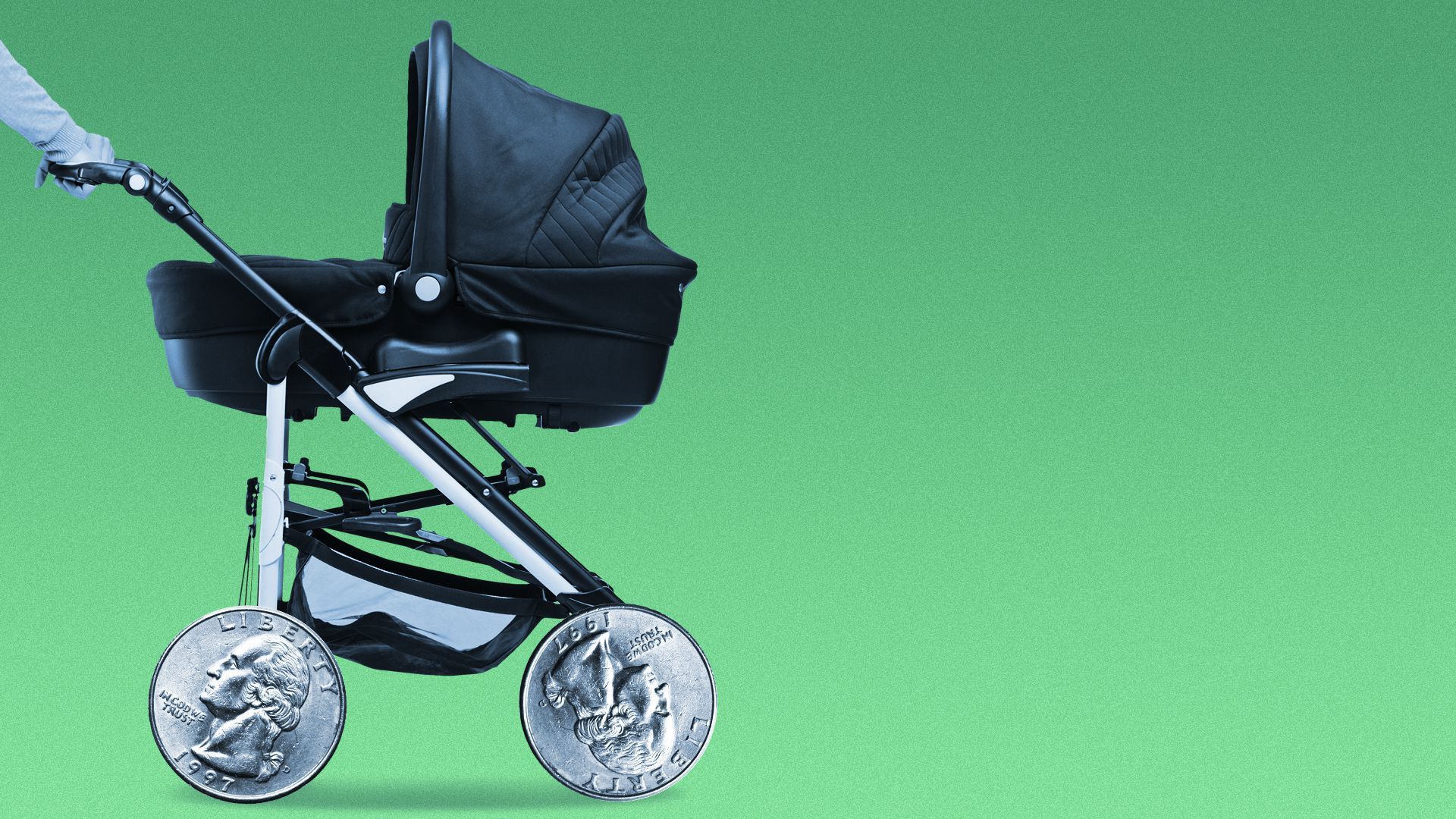How economic growth can endure as population growth slows
Add Axios as your preferred source to
see more of our stories on Google.

Illustration: Shoshana Gordon/Axios
In a new working paper, Stanford economist Charles Jones sets out to answer a simple question: Why over the past 150 years has GDP per person in the U.S. increased exponentially at a relatively stable rate of around 2% per year?
The big picture: Growth comes from ideas and ideas come from people — and new population projections suggest the U.S. will have fewer of those in the future.
- That could mean economic growth slows as well, but smarter policies around education, opportunity and technology could keep the new ideas coming.
What's happening: One answer to Jones' question is what's known as the semi-endogenous growth model, which holds that income per person depends on the aggregate number of ideas in the economy.
- While a capital improvement — like a new computer — can only be used by one worker at a time, new ideas "can be used by any number of people at the same time, so every improvement has the potential to benefit everyone," Jones writes.
- That means economic growth is ultimately dependent on the growth of the number of researchers or innovators, which in turn is dependent on population growth overall.
The catch: New census data released this week confirms that U.S. population growth is slowing and the country as a whole is getting older.
- That would seem to be bad news for long-term economic growth, as the supply of the fuel for new ideas — people — begins to dwindle in the future.
- While the growth of ideas has outpaced population growth since 1950 thanks to rising educational attainment and increases in the percentage of the population devoted to research, it won't be easy to expand education or the sheer number of researchers in the U.S.
Yes, but: There's still some room to expand educational opportunities and researcher populations in less-developed countries, as well as at home — Jones notes that just 12% of inventors in the U.S. are women.
- Already artificial intelligence models are making inventions, including a new antibiotic, and it's possible that better AI could more than make up for fewer flesh-and-blood innovators.
